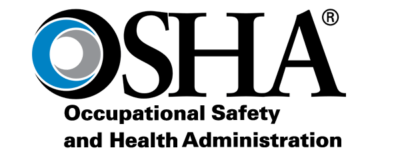UPDATE The gin-pole related accident that took three lives in Miami Gardens, FL last September generated an OSHA investigation that rendered conclusions that have since been thrown out by an OSHA Review Commission judge. OSHA initially issued a $12,934 penalty against Tower King ll, Inc. of Cedar Hill, TX following the accident, calling it a “general duty violation.” Tower King II won the appeal of the ruling on the 958-foot WSVN-TV tower tragedy that counted among the victims, the owner’s stepson.
OSHA investigators concluded the cause of the accident was the overloading of the rigging components at the bridle connection. This conclusion was based on, “independent calculations of the imposed loads,” according to the ruling by Review Commission Judge Heather Joys.
“The engineer had miscalculated the imposed loads because he incorrectly used a lever arm length (the distance between the bridle and basket connection) of 70 feet rather than the correct length of 12 feet despite the rigging plan indicating attachment points on the 12-foot arbor,” Judge Joys ruling stated. “This resulted in an undercalculation of the forces on the bridle connection of 11,700 pounds. Tower King used rigging components sufficient ‘to carry those predicted loads’ but insufficient to carry the actual load,” the ruling stated.
“They [OSHA] were fumbling around in the dark,” Tod T. Morrow of Morrow Meyer, LLC, Tower King II’s legal counsel, told Inside Towers. “I think they were under pressure since it was such a high profile accident. Their decision to issue a citation in this case was an example of, ‘Monday morning quarterbacking’ of the worst sort,” he said. “It appeared to me that OSHA issued a citation simply because an accident had occurred and then struggled to define what exactly the company had done wrong.”
In conclusion, Judge Joys ruled: “The Secretary has failed to meet his burden to establish Tower King failed to render its workplace free of a hazard recognized by Tower King or the telecommunications tower industry. He has failed to meet his burden to establish Tower King violated the general duty clause. The citation is accordingly vacated.” The ruling will be officially filed on July 17, and subject to further appeal.
“This is a victory for the tower construction industry as a whole,” Morrow said. “Essentially, OSHA was attempting to impose requirements on the industry that went far beyond the industry’s consensus standard. OSHA took the position that an engineer must review all details of the rigging plan, including sling size, sling angles and fall protection attachment points. In essence, OSHA was saying that competent riggers were not competent to determine the means and methods of the rigging in the field,” he said. “Because OSHA lacked familiarity with the tower industry, it made a lot of mistakes in its investigation.” Comments? Email us.
by Jim Fryer, Managing Editor, Inside Towers
July 15, 2019




Reader Interactions